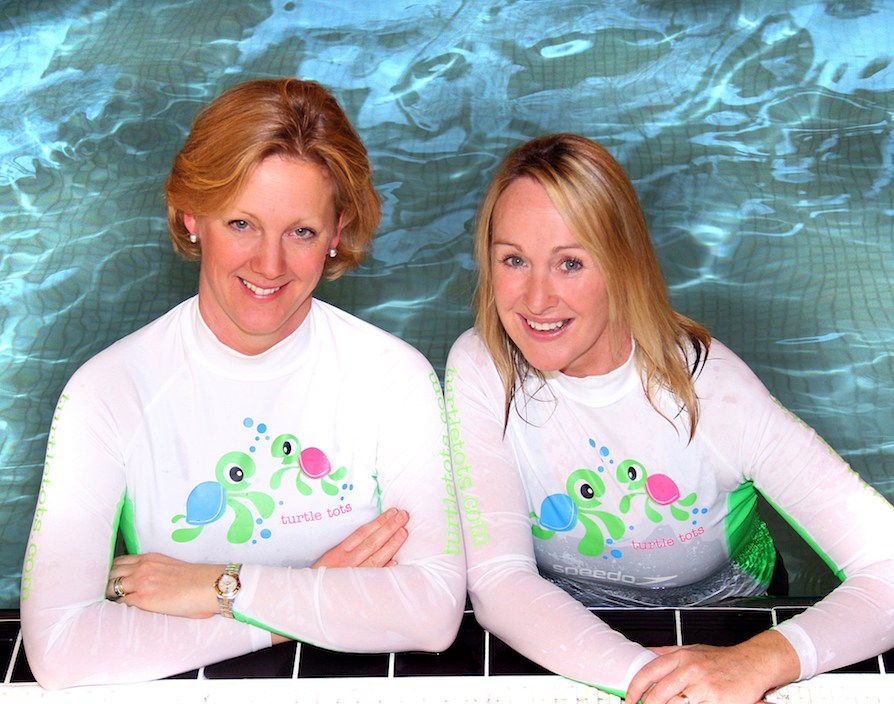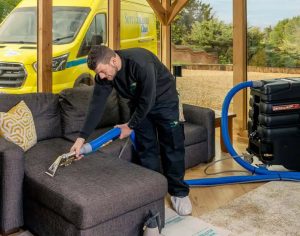If there were any doubt about the presence of corporate social responsibility (CSR) in the UK, you need only look to the mission of Social Enterprise UK, the social enterprise body, which works to create positive change. It connects titans of industry such as Johnson & Johnson and Santander with socially-conscious small businesses to improve their supply chains. With an ambition to reach a £1bn corporate-social spend, the body revealed £45m had been spent as of April 2018. At the time Peter Holbrook, chief executive of Social Enterprise UK, said: “Our latest report shows that 100% of major corporates have found the services of social enterprises to be either as good or better than their previous suppliers with prices which are just as competitive. It’s a win-win situation.”
Indeed, there’s no denying the opportunity presented by CSR. But while there’s a great deal of mention about corporates and small businesses of the social enterprise variety, where does that leave franchises? It goes without saying but the dynamics of a franchise are vastly different to those of a corporate or small business, so is CSR and social impact beyond their reach? Not at all.
Paul Nuth, founder of Driving Miss Daisy UK, the companionship driving franchise, has experience in charitable work which encouraged him to personally make a difference through franchising. Previously chair of trustees for Waste to Wonder, the furniture recycling charity that converts IT equipment into school materials in deprived countries, he knew full well the benefits of giving and the good he could do. “We have an increasing number of vulnerable people of all ages and especially the elderly who are unable to engage in society due to not being able to drive or transport themselves around,” says Nuth. “The effect on the individual can be devastating in terms of isolation, loneliness and reliance on others and the ripple effect of this reaches out and affects society as a whole.”
He discovered Driving Miss Daisy while holidaying in New Zealand when one of the branded vehicles drove by. Some 25 years earlier, he’d seen the film of the same name, starring” Jessica Tandy and Morgan Freeman as the titular Miss Daisy and her dedicated chauffeur respectively and he was sold. “I immediately understood the concept and felt compelled to introduce the service to the UK,” he recalls. So Nuth chose Driving Miss Daisy’s CEO strategically and recruited none other than the founder of Waste to Wonder, Greg Blezard.
There’s real opportunity for franchisees to make a genuine difference to the communities where they operate, Nuth believes. Seemingly CSR is at the heart of the business – and heart is crucial for the franchise, he adds. “First and foremost, people should have a significant focus on building a profitable enterprise to ensure it exists in the future and thrives but with Driving Miss Daisy, our franchisees must be heart-led.” As such, the franchise spends plenty of time to prevent “significant risk” with the “wrong people” introduced to the network, so the franchisees brought on board understand the values fully.
And just because Driving Miss Daisy happens to operate in an empathic capacity doesn’t mean more franchises shouldn’t implement CSR and strive for social impact, according to Nuth. “It makes absolute business sense, from improving the brand, customer engagement, attracting top talent and giving a competitive edge,” he says. “But it goes beyond the profit margins. A franchise’s social impact should be a measurable way in which we can show the value of what we do for our beneficiaries and society as a whole.”
It would appear that said business sense runs deep within Turtle Tots, the swimming lessons franchise, which implemented CSR from the moment the doors opened, recalls co-founder Caroline Sparks. “From day one we knew we wanted to differentiate ourselves from our competition and at the same time give something back to the local community,” she says.
One of the unique aspects of Turtle Tots is that all franchisees get behind a charity local to them. It works on a basis that each franchisee is required to donate a turnover percentage to a charity of their choice. And the culture has had an incredible amount of potency, as the franchisor’s partnership with Global Radio’s Make Some Noise campaign demonstrated in 2017. “Through our 50 franchisees, who teach 12,000 babies every week, we raised over £56,000 for their charity last year,” Sparks says. “The funds are shared amongst smaller charities across the UK, projects that struggle to be heard but provide life-saving support to families and youngsters in need.”
While it stands to reason to ensure CSR doesn’t break down across the network, in the same way as Driving Miss Daisy, Turtle Tots attracts like-minded franchisees passionate about the objectives while there is a selection process to go through as well as frequent quality checks too. “Most of our franchisees were Turtle Tots customers or teachers, before they decided to take the plunge and understand the values that underpin Turtle Tots,” explains Sparks. Offering an example of how dedicated franchisees are, she adds: “Most recently the owner of Turtle Tots Plymouth & West Devon, along with one of the swimming teachers, jumped out of a plane and skydived 15,000 feet in aid of Plymouth’s Neonatal Intensive Care Unit parental accommodation campaign Keep Me Close.”
It may be a giveaway from the name of this next franchise alone that it has a giving focus but that doesn’t make it any less important. At Home Instead Senior Care, it seems there’s a top-down approach to CSR as Ruth Brown, the head of franchise development, admits it’s very close to her own heart. “I volunteered for the Samaritans for a number of years and currently volunteer for Contact the Elderly,” she says.
In the franchise itself there’s a dedication to “changing the face of ageing” in a bid to disrupt the care sector in the UK and having CSR fused into that mission is a natural fit to achieve that. To put smiles on the faces of seniors, Home Instead Senior Care created a wish-granting charity called The Bring Joy Foundation, which funds events, activities and hobbies to create memories for the elderly. “Retired warehouseman Harry Horrocks was the inspiration for the first wish granted, he simply wanted to go to the seaside,” Brown details. “The Bring Joy Foundation took Harry and 96 members of his community centre for a VIP day trip to Llandudno. Other donations have included creating a sensory room for seniors in an extra care village through to staging vintage tea dances and funding festive dinners.”
Outside organisations interested in participating and helping the elderly can get involved with the foundation too but Home Instead Senior Care is keen to ensure franchisees foster a culture of giving among staff.” “We’ve seen offices take part in lengthy cycle rides, treks and chilly Christmas day swims through to family fun days and master bake-offs,” Brown says. “If our owners weren’t interested in making a difference they wouldn’t have been successful in our recruitment process. We believe ethical franchising and making a social impact go hand in hand,” she concludes.
So there you have it. Regardless of your franchise’s size or the amount of staff or money you have, if you want to make a difference, the opportunity is in your grasp from day one.

Zen Terrelonge
As editor, Terrelonge can be found on the hunt for all things startup and scaleup - that's when he's not busy talking babies via DADult Life. Whether it's health or hospitality, food or philanthropy, tech or travel, he'll be seeking out the most interesting entrepreneurial developments to run in the magazine and online.

Zen Terrelonge
As editor, Terrelonge can be found on the hunt for all things startup and scaleup - that's when he's not busy talking babies via DADult Life. Whether it's health or hospitality, food or philanthropy, tech or travel, he'll be seeking out the most interesting entrepreneurial developments to run in the magazine and online.


































